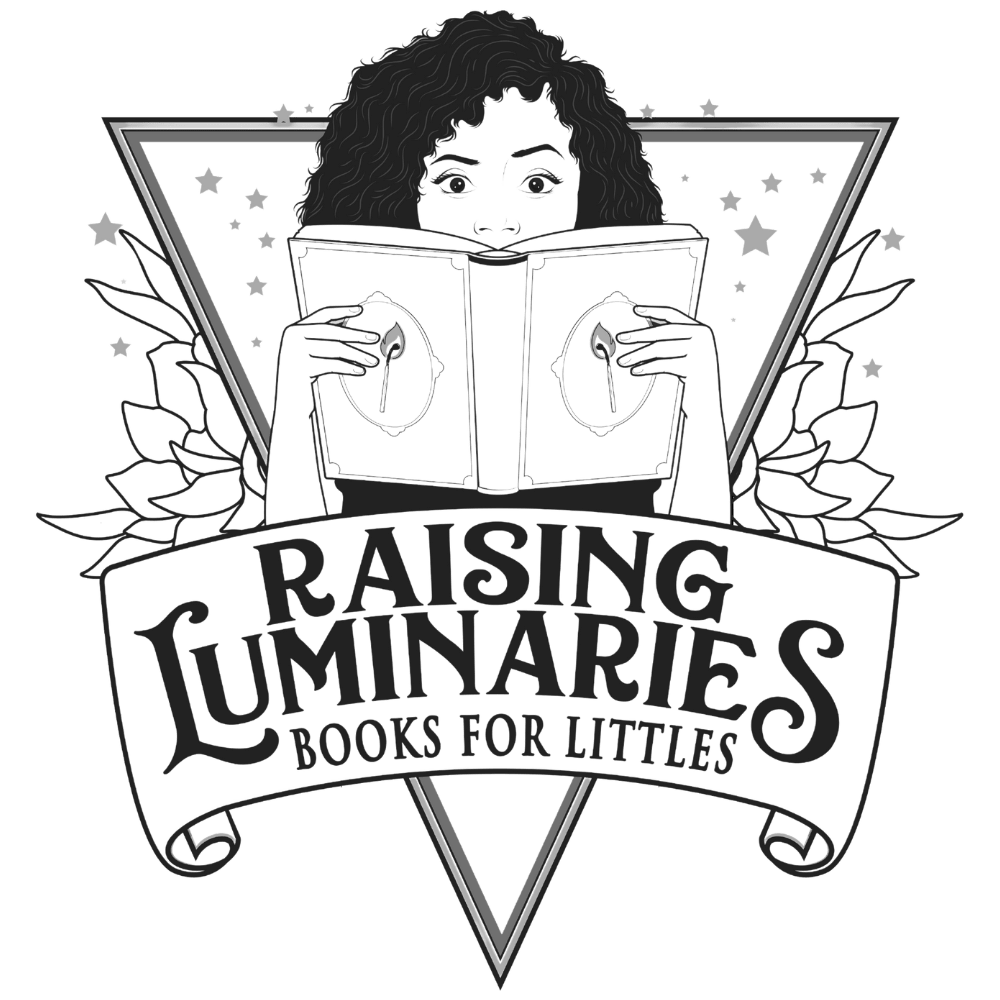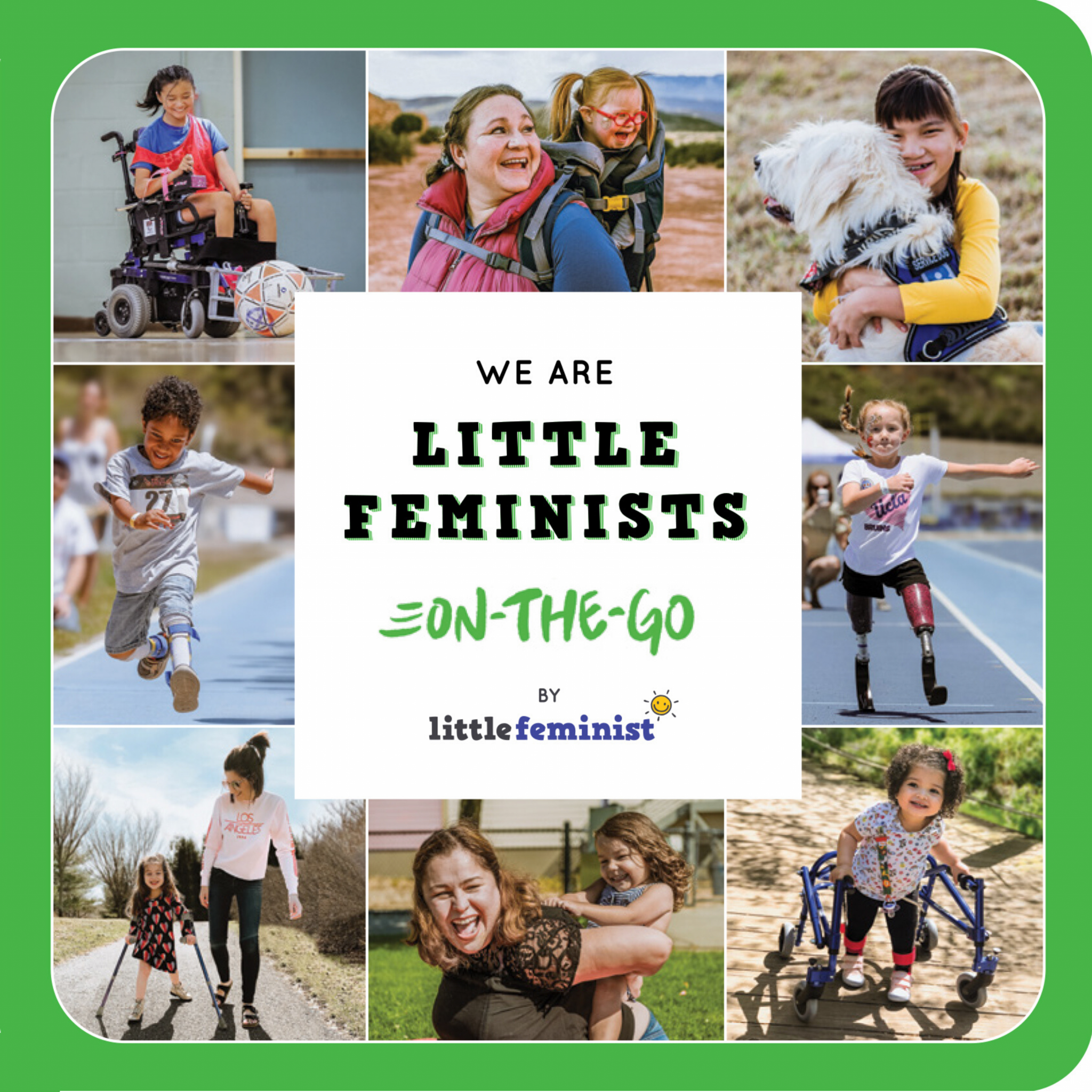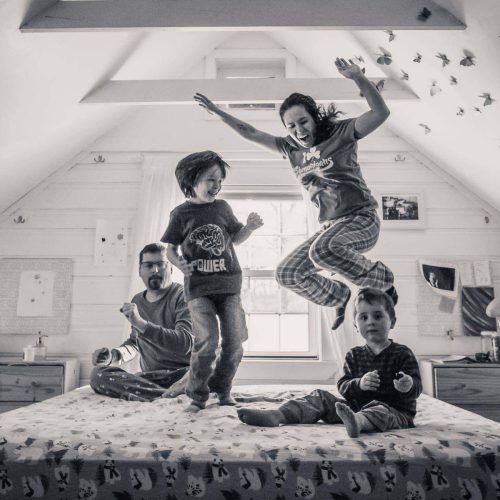Get monthly email updates when I add new resources to our Family Action Toolkits
Where Are All The Disabled Caregivers in Kid’s Stories?
Sharing this post on social media? Use this description to make it accessible: [Image description: Illustration from ‘Upsy-Daisy, Baby!’ by Susan Hughes and Ashley Barron. An East Asian, wheelchair-using dad helps his baby into their high chair for dinner.]
In this #OwnVoices spotlight: Unpacking the erasure of disabled caregivers in family media.
Raising Luminaries is free and accessible for readers who can’t afford a paywall. Posts may contain affiliate links, which allow me to earn a commission at no extra cost to you. Check out the full affiliate disclosure along with my statement of accountability.
Disability 105: Unpacking The Erasure of Disability in Caretaking
By Alyssa Messman: Disability Rights Advocate
Note about identity-first language: Both the author of this article and Ashia R., the person who runs Raising Luminaries, use identity-first language in reference to our disabilities, so we use the term ‘disabled parents’ more often in this article. We respect the rights of folks to self-identify in the way that works for them – so don’t @ us for the way we self-identify, and don’t use our work as an excuse to mis-identify folks who prefer person-first language.
I’ve been thinking for a long time that there needs to be a list of books featuring disabled parents.
There are so many booklists being put together all the time for various types of representation and social justice themes, but that is one I never see. The only one I’ve ever been able to find is on TLG’s website, but it hasn’t been updated in a long time. (Also, So B. It is on there, which just. yikes.)
It’s frustrating that it’s so rare. What gets me the most is when there’s a book specifically about how there are *all kinds of families* and *how beautiful they al are* and then I flip through it, and there’s zero disabled parents.
Erasure shows how effective eugenic rhetoric is.
I doubt that every person making these books considers themself a supporter of eugenics. But the idea that disabled people can’t or shouldn’t be parents has ingrained itself so deeply in most people’s minds that when they draw a picture of a family — or even deliberately set out to draw every kind of family — it doesn’t occur to them to draw a parent with a disability.
It’s especially jarring for me, because when I was growing up the most significant adult in my life besides my parents was my dad’s ex-wife, Darla, who is my siblings’ mother. When I was a baby/toddler, she lived across the street from me and my parents and would babysit for me a lot. Then when my parents and I got evicted, we moved in with her for awhile. Later on, when we had our own house again, she would live with us on and off because she has health problems and couldn’t always live alone. She’s always been a big presence in my life, is my point.
The kind of family constellation I grew up in is not something I’ve seen represented in children’s literature.
Really both of those kinds of things –disabled parents and that type of blended family — aren’t represented in children’s books enough. There are books about step-families (not enough of those either) but they’re always from the POV of children adjusting to a new stepparent or new sibling. There’s never any kind of bond shown between a child from the new marriage and their parent’s ex-partner. (Why would there be? They’re not related by blood or marriage, and those are the only things that matter, right? \sarcasm) Weirdly enough, the only place I have ever seen that represented is in the two sequels to the Disney live-action Christmas movie The Santa Clause.
I know not everyone grew up with a disabled parent or parent-like figure in their life. But I’m always surprised whenever I’m reminded that for a lot of people, it’s so far outside their experience that they never even think about it. Or they’ll talk about whether disabled people should be parents as if it’s something that might potentially happen in the future, rather than something that has been happening throughout all of human history.
Writers acknowledge that disabled people can become parents – but wring their hands over whether it’s a good idea and wonder how someone using a wheelchair can keep a baby safe.
That really gets to me, because I was very particular about who I would let hold me as a baby (I’m Autistic). And my parents respected my boundaries and consent even at that young age, so that’s part of why Darla babysat for me so much — she was literally the only adult besides my parents who could hold me without causing me to scream. I always felt very safe in her arms. I was so confused when I got older and found out that a lot of people think disabled people don’t or shouldn’t raise children. (I was also super confused when I learned that a lot of people think disabled people don’t have sex…cause, uh, my siblings clearly exist!)
I want disabled kids to know that they can grow up to be great parents.
I’m disabled and want to have children someday, so obviously the lack of representation bothers me on that level as well. I think in addition to making the disabled parents list, I want to make a list of other books where children have disabled adult mentors. I know some such books exist, usually with the mentor being an elder. Which is important representation when it’s done well, but 1) it often isn’t done well and plays into ageist stereotypes, and 2) those characters’ disabilities are usually ones they’ve acquired relatively recently, and while that’s an important form of representation, I think it’s equally important to portray mentors who have lived most or all of their lives as disabled people. I only know of two picture books about a child spending time with a developmentally disabled adult, and they’re both awful.
You may also like: Diverse Family Constellations In Kids Books
Critical Reading Skills – What to watch out for in responsible disability representation
What to Look For:
- Parents doing things that children need their parents to do. It’s ok to show partners, older children, and other family members doing some things that the disabled parent can’t do, but not to the point where it’s presented as the kids doing all the work/the kid being the only competent family member (“parentification”)
- Joy.
- Children feeling safe.
- Other characters not thinking it’s strange that a disabled person is a parent. Or if someone does have a problem with it, it leads into a message about ableism, rather than being treated as reasonable concern.
- Families where multiple members have disabilities
- Books where a disabled adult from outside of the family teaches/mentors a child.
- Parents who aren’t white, straight, and cis.
What to Avoid:
- Showing the child doing things for their disabled parent, without showing the parent do anything for their child. (When I say “child” here, I mean as in an actual child. Showing an older adult being cared for by their adult offspring is different, though it can still potentially be problematic depending on how it’s portrayed.)
- Infantilization.
- Dying solely so the protagonist can learn a lesson. Their death being treated as an inevitable result of their disability even if it wasn’t a terminal illness.
- Mental age/nondisabled children “outgrowing” disabled adults.
Start early with board books normalizing caregivers with disabilities
Upsy-Daisy, Baby! (ages 6m-4y), Clean It! (ages 2-5), On The Go*(ages 4m-5y)
Not pictured: Mama Zooms (ages 2-5y)
You might also like Influential Kids Books Featuring Capable Disabled Characters
Prioritize #OwnVoices stories written by families with disabled caregivers
Rolling Through Life With Mommy*(ages 3-6), Dad, Jackie, and Me* (ages 7-10), You’re So Clumsy, Charley* (ages 5-8), My Autistic Mama (ages 2-5)
Not pictured:Amy, The Story of A Deaf Child*(ages 3-7), The Sound of Silence: Growing Up Hearing With Deaf Parents* (ages 8-12)
You might also like De-Stigmatizing Disability: Stereotype-Smashing Kids Books
Include picture books with caregivers with disabilities & chronic illness in your regular routine
The Tea Dragon Festival (ages 7+), Dorothea’s Eyes (ages 7-10), Mommy Sayang (ages 3-6)
Not pictured: Hands and Hearts (ages 3-6), Lucy’s Picture (ages 3-6), Babu’s Song (ages 5-8), Jeremy’s Dreidel (ages 4-8), An Ordinary Day (ages 4+)
You might also like 5 Things Every Kid Should Know About Disability – Raising Anti-Ableist Kids
Highlight the importance of #ActuallyDisabled adult mentors
Not So Tall For Six (ages 4-8), The Seeing Stick (ages 3-8), She Touched The World*(ages 10-14)
Not pictured: Private And Confidential (ages 6-8), Sing To The Stars (ages 8-10), Through Grandpa’s Eyes (ages 6-9), Annie And Helen (ages 6-9)
You might also like: #OwnVoices Kidlit by Authors with Disabilities
Stay Curious, Stand Brave & Center #OwnVoices
Raising Luminaries & Books for Littles is an #OwnVoices disabled project run by Ashia Ray – a 3rd generation disabled parent. Support Raising Luminaries on Patreon so I can keep providing the #OwnVoices perspectives that caregivers and educators need to raise this next generation of kind and courageous leaders.
Want to learn more about parenting with a disability? Check out (and support!) the ‘Parenting’ episode of the Disability Visibility Project featuring parents with disabilities, Heather Watkins and Eliza Hull (transcripts available, obvs.)
Join us in the comments – which books reflect your experience as a disabled parent or person raised by disabled caregivers?














